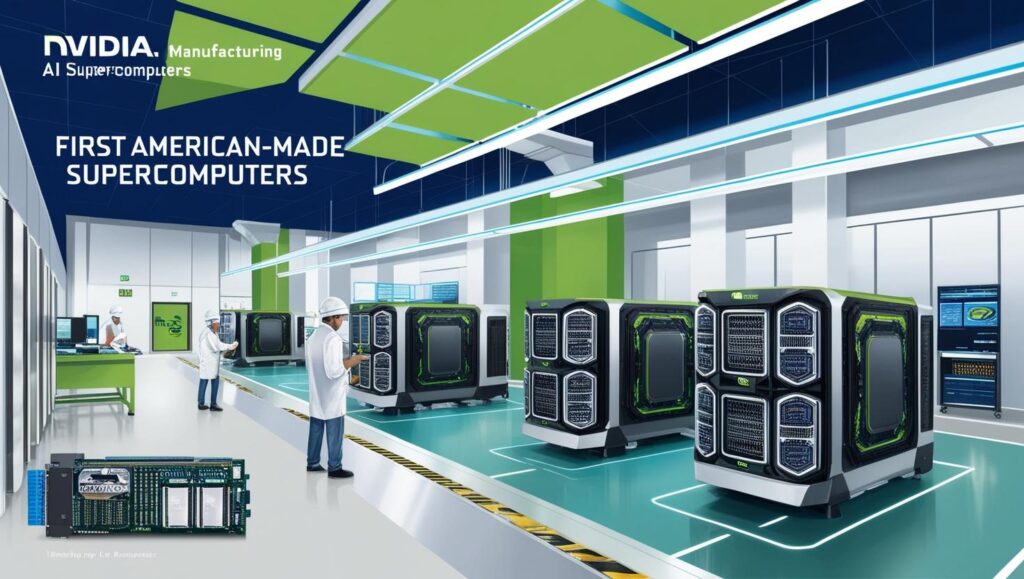Residents around the Boca Chica rocket complex vote overwhelmingly to incorporate as “Starbase,” creating a company-town style municipality.
In a decisive vote on May 3, 2025, residents living near SpaceX’s Boca Chica launch site approved incorporating their community as the City of Starbase. Voters roughly two-thirds of whom work for SpaceX backed the measure by a landslide margin (212 votes in favor, 6 against). Soon after polls closed, SpaceX CEO Elon Musk celebrated on social media: “Starbase, Texas, is now a real city!”. Once Cameron County certifies the results, Starbase will be an official municipality, complete with its own mayor and city council (all of whom are SpaceX employees).
Background: SpaceX’s Boca Chica “Starbase” Facility
SpaceX’s Starbase site at Boca Chica, Texas, houses towering Starship rockets and assembly facilities. The remote spaceport – perched on roughly 1.5 square miles of Gulf Coast marshlands about 20 miles from Brownsville – has been the primary manufacturing and launch complex for SpaceX’s massive Starship launch vehicle. Since its opening in 2019, SpaceX has run Starship test flights here, earning hundreds of millions of dollars in local economic impact. Thousands of SpaceX employees now work at Starbase (with several hundred living on-site), and SpaceX has privately built much of the area’s infrastructure – from roads to utilities to schools – under agreements with Cameron County. The site is dotted with airstream trailers and prefab housing alongside giant rocket test stands; as one reporter notes, “Starship prototypes and a Super Heavy booster stand at the end of a road next to SpaceX’s Starship assembly facilities in Starbase”. Elon Musk formally named the area “Starbase” on social media four years ago, reflecting his goal of making the region a “Gateway to Mars” through Starship production.
Why Cityhood? Local and Corporate Motivations
Proponents – largely SpaceX workers and supporters say city status will let Starbase better handle the needs of a growing workforce and the demands of frequent rocket launches. In a petition to county officials, SpaceX argued that “to continue growing the workforce…we need the ability to grow Starbase as a community,” noting that incorporation would “streamline the processes required to build the amenities necessary to make the area a world-class place to live” for existing and future employees. Starbase General Manager Kathryn Lueders told local leaders that SpaceX already provides roads, schools, and even medical care in the area, and that official cityhood would not undermine the company’s environmental safeguards.
Supporters also highlight practical benefits of municipal powers. As an incorporated city, Starbase can collect local taxes, control building permits and zoning, and manage its own infrastructure instead of relying on Cameron County. According to AFP reporting, the change will allow Starbase “to control building and permitting and avoid other regulatory hurdles, while collecting taxes and writing local law”. SpaceX and city backers argue this could speed up everything from laying pipes and streets to erecting worker housing. At a state legislative hearing, dozens of SpaceX engineers testified that city status would improve coordination during launches for example by simplifying road and beach closures “without increasing closures,” a crucial factor for safety and the company’s growth.
In short, officials from SpaceX say a Starbase city gives them a streamlined local partner: a city government made up of their own people that can manage permits, infrastructure and launch logistics efficiently. Even one early voter leaving the polls summed it up: “I think it’s a net benefit for everyone… but not a lot of people will understand why,” he said, suggesting many details go over outsiders’ heads.
Implications for SpaceX and Local Governance
Cityhood transforms Starbase into a classic company town. The City of Starbase will grant SpaceX and its staff direct say over land use and local ordinances. For example, the new city government can zone property and approve construction on land that SpaceX either owns or uses, and can allocate city tax revenue back to infrastructure projects. This could smooth future expansion: if SpaceX wants to build new facilities or worker housing, city approval can proceed without lengthy county review. In practice, the mayor and all city commissioners are SpaceX employees (the first mayor, Bobby Peden, is SpaceX’s vice president for Texas launches), effectively giving the company control over local regulations.
Starbase cityhood may also shift responsibility for launch-related road and beach closures. Currently, closing the nearby Highway 4 and public access to Boca Chica Beach for rocket tests requires county approval. Pending Texas legislation linked to the city vote would hand that authority to the new city government. SpaceX contends this “streamlines beach closures and operations” at the launch site, especially as the company seeks federal permission to ramp up Starship flights from five to 25 per year. In effect, Starbase could soon decide when to lock down Boca Chica State Park and the popular coastal beach (long known as a “poor people’s beach” for local visitors). Critics fear the city will bend this power toward Musk’s interests; supporters say it simply makes logistics more reliable.
The new city charter also means Starbase can levy taxes and raise revenue that previously went to Cameron County. Philanthropic spacefarers have joked that Starbase will now “occupy Mars” or at least the tax base but real gains include funds for roads, utilities, and public services directly under the city’s control. On the flip side, opponents worry that all these powers make Starbase a true “company town.” As the Guardian observes, the setup has “more in common with Gilded Age industrialists than most modern US businesses” a small town almost entirely run by one company. Indeed, Starbase’s population (around 500 people, roughly 260 of them SpaceX employees) live on land largely owned or controlled by the firm, and the first city officials are SpaceX staff. In a nod to other special-purpose cities, commentators noted that Disney’s Reedy Creek District once similarly let a corporation govern a community.
Reactions: Supporters, Critics, and Officials
SpaceX itself has largely let the election speak for the company. Aside from Musk’s celebratory tweet, the company gave no immediate public comment. Local officials have been more vocal. Cameron County Judge Eddie Treviño Jr. (who oversees the county that includes Starbase) congratulated SpaceX on its economic impact but warned that ceding beach control to a private town “does not serve the public interest,” noting strong local opposition to that idea. The Texas Legislature has already seen bills on beach access: one would give spaceport cities full closure authority (which a House panel recently blocked) and another would criminalize refusal to evacuate for launches (pending if authority shifts).
Among residents, there was little fanfare on election night. In Starbase itself, no parties or fireworks were reported just a quiet scene with a few workers at the local bar. Many SpaceX employees decline to discuss the vote publicly, but the general mood is positive; as one man put it, the new city is “a net benefit for everyone”. The City of Starbase even has a 9-foot statue of Musk and an “Occupy Mars” mural in its employee lounge symbols that the company’s presence looms large.
On the other hand, local activists and environmental groups have staged protests. Bekah Hinojosa of the South Texas Environmental Justice Network warned the election would give Musk unchecked power to expand rocket operations and potentially harm fragile habitats. The Carrizo/Comecrudo Nation of Texas, with ancestral ties to the Boca Chica dunes, echoed those fears about loss of traditional beach access. These groups lament that Starbase voters mostly SpaceX employees did not represent the broader county and argued that SpaceX’s spills and emissions (cited in 2024 EPA findings) remain a concern. Hinojosa’s group plans continued protests even after the vote, saying “we’ve been sounding the alarm…now…we’re finally being heard”.
A Company Town in the Space Age
Incorporating Starbase is largely a Texas-legal formality new cities are created regularly in the state but it carries outsized symbolism for the space industry. As the Texas Tribune notes, Musk may be the first modern entrepreneur to “incorporate his own town almost solely for his employees”. (Musk has floated doing something similar for his Austin-area facilities as well.) The phenomenon taps into a long American tradition of company towns, yet it arrives in the 21st century amid rising scrutiny of big tech’s local influence.
For SpaceX, the new city could accelerate its long-term plans. With Starbase now official, Musk has greater local control to expand launch schedules, build worker housing, or even develop new facilities without county bureaucratic delays. For the surrounding region, it means a SpaceX-run government will soon write ordinances, set taxes, and manage services in Starbase, a test case for how private space companies might shape their home turf.
As the votes were tallied, one thing was clear: in South Texas, Elon Musk’s futuristic vision now carries the weight of municipal authority. Starbase is no longer just a nickname for a launch site – it’s an actual city in Texas, born of the rockets and people aiming for Mars.

